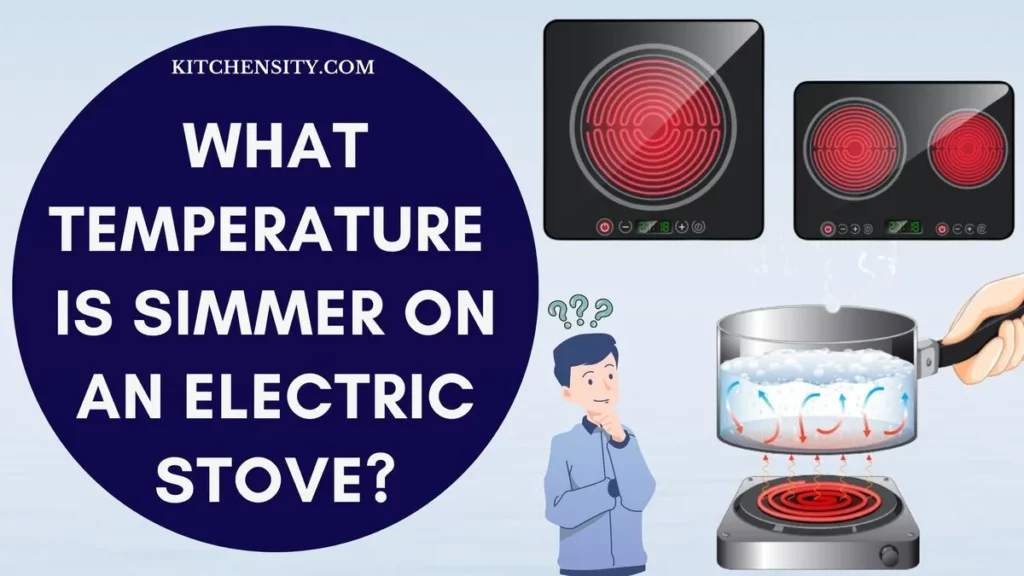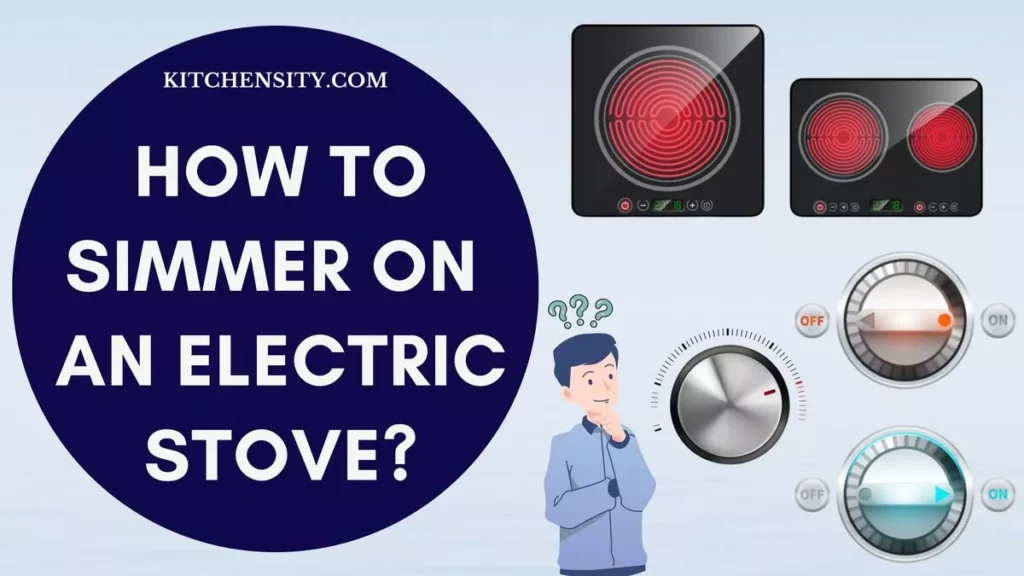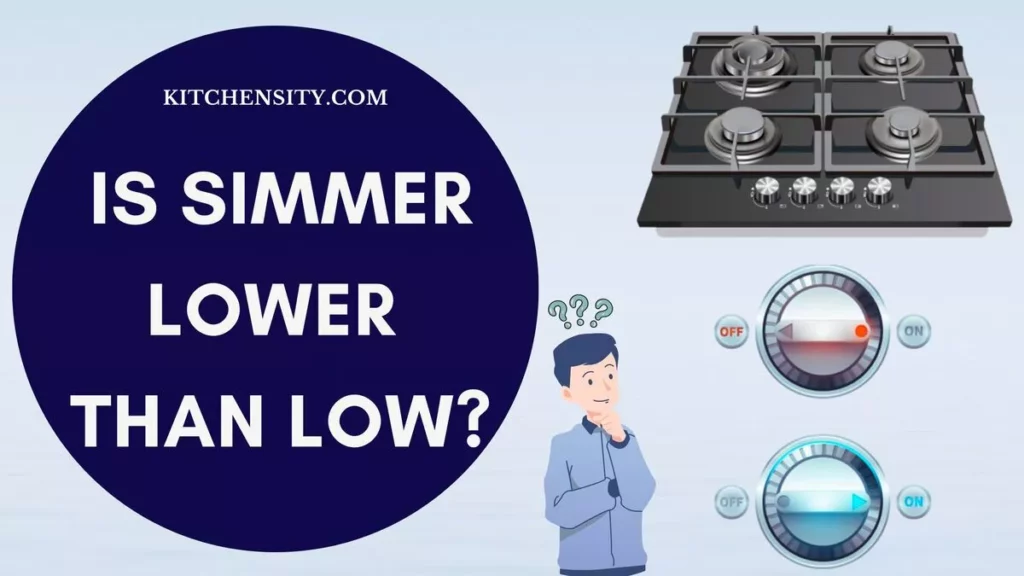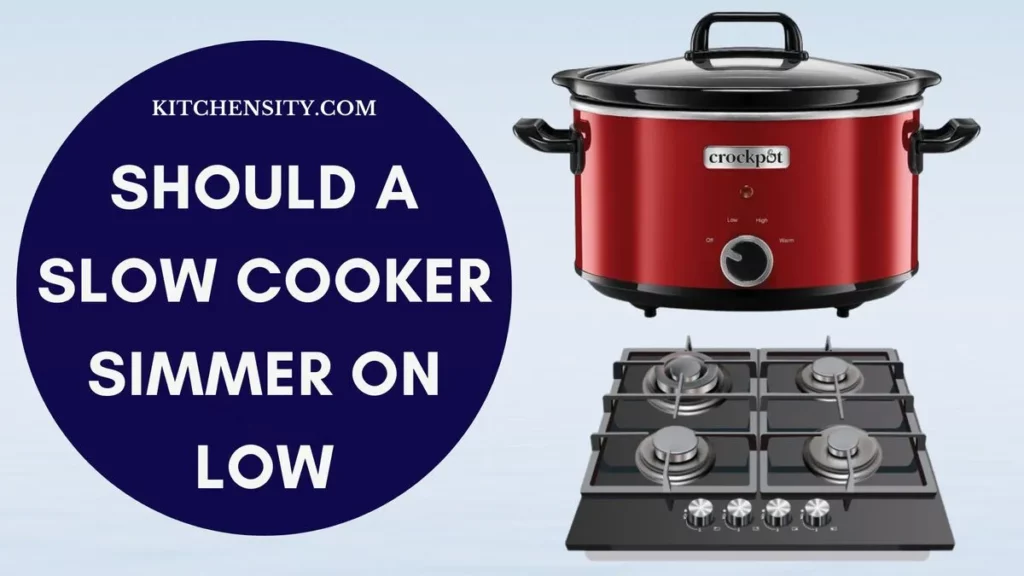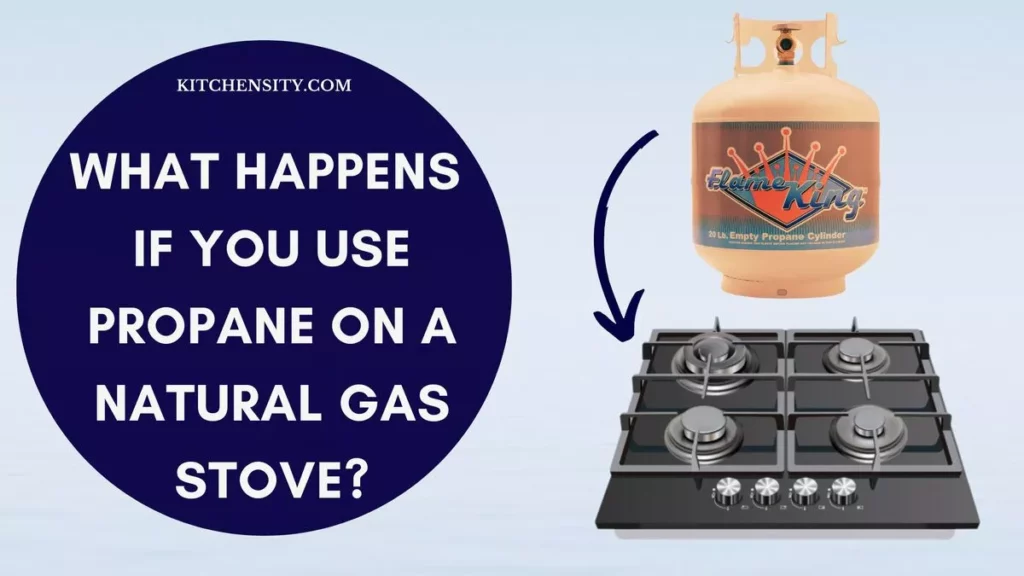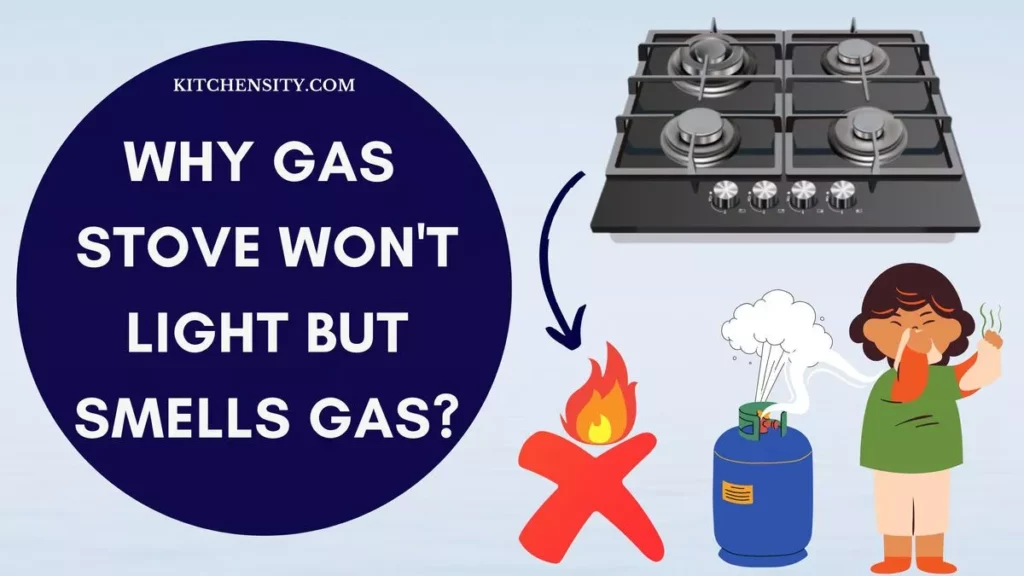In today’s fast-paced world, every second counts. So, when you’re in a hurry to prepare a meal or make your morning coffee, waiting for water to boil on an electric stove can be frustrating.
It’s a common frustration for many cooks. But why does it happen?
In this article, we’ll delve into the reasons why electric stoves seem to take forever to boil water and explore some tips to speed up the process.
Table of Contents
- 1 Electric Stoves Take Forever To Boil Water: Why?
- 2 Understanding The Electric Stove
- 3 Why Does My Electric Stove Take So Long To Boil Water?
- 4 How Can I Make My Electric Stove Boil Water Faster?
- 5 How Long To Boil Water On An Electric Stove?
- 6 How Long Should It Take An Electric Stove To Heat Up?
- 7 Is It Better To Boil Water On Electric Or Gas Stoves?
- 8 What Is The Most Efficient Way To Boil Water With Electricity?
- 9 Final Verdict: Electric Stoves Take Forever To Boil Water
- 10 FAQs
- 10.1 Why Do Electric Stoves Take Longer To Boil Water Than Gas Stoves?
- 10.2 Can I Use Any Pot To Boil Water On An Electric Stove?
- 10.3 Are Electric Kettles More Energy-Efficient For Boiling Water?
- 10.4 Does Using A Lid On The Pot Make A Difference In Boiling Time?
- 10.5 What’s The Ideal Wattage For An Electric Stove To Boil Water Quickly?
Electric Stoves Take Forever To Boil Water: Why?
Electric stoves take longer to boil water primarily due to their indirect heat transfer method. Unlike gas stoves with open flames, electric stoves use heating elements like coils or radiant surfaces to heat the cookware, which then heats the water.
Also Read – How Hot Do Electric Stove Burners Get?
Let’s explore this topic in detail.
Understanding The Electric Stove
Electric Stoves have become a common fixture in kitchens around the world. Unlike their gas counterparts, which use open flames to generate heat, electric stoves operate on a different principle. They employ electrical resistance to produce the heat needed for cooking.
Here’s a more detailed explanation of how electric stoves work and why they might be slower at boiling water:
The Basics Of Electric Stoves
At the heart of an electric stove are heating elements, typically made of coiled wires or flat, radiant surfaces. When you turn on a burner, an electric current flows through these elements, encountering resistance. This resistance generates heat, which is then transferred to the cookware placed on top of the burner.
The key difference between electric and gas stoves lies in this heat transfer process. Gas stoves provide an open flame directly beneath the cookware, rapidly transferring heat to the pot or pan. In contrast, electric stoves rely on a more indirect method.
The heat generated in the coils or radiant elements must first warm up the burner surface, which then heats the cookware. This indirect path inherently takes more time.
Also Read – Gas Stove Leaking Gas From Burner
The Boiling Point Of Water
To understand why electric stoves can be slower at boiling water, we must remember the science behind boiling. Water boils at 212°F (100°C) at sea level, and achieving this temperature is crucial to making water reach a rolling boil.
When you place a pot of water on an electric stove, the heat from the coil or radiant element is transferred to the bottom of the pot. As the pot heats up, it, in turn, begins to heat the water inside. This process takes time, as each layer of the pot and water must gradually reach the boiling point.
In contrast, gas stoves, with their direct flame, can immediately apply high levels of heat to the bottom of the pot, rapidly raising the temperature of the water and expediting the boiling process.
So, electric stoves are inherently slower at boiling water due to their method of heat transfer, which is indirect and gradual compared to the direct and instant heat provided by gas stoves.
Also Read – Why Gas Stove Won’t Light But Smells Gas?
Why Does My Electric Stove Take So Long To Boil Water?
If you’ve ever found yourself impatiently waiting for a pot of water to come to a boil on your electric stove, you’re not alone. Many people have experienced the frustration of what seems like an eternity just to get that rolling boil.
Let’s break down why your electric stove might be taking longer than you’d like to bring water to a boil.
1. Heat Transfer
Electric stoves operate on a different principle compared to their gas counterparts. They use heating elements, usually coils or flat radiant surfaces, to generate heat. When you turn on a burner, an electric current flows through these elements, creating resistance and, in turn, producing heat.
However, here’s the catch: this heat generation isn’t as direct as the open flame of a gas stove. The heat first needs to transfer from the element to the burner, and then from the burner to your pot or kettle. This multi-step process naturally takes more time than the immediate and direct heat provided by a gas flame.
2. Wattage Matters
The wattage of your electric stove plays a significant role in how quickly it can boil water. Wattage represents the stove’s power output—the higher the wattage, the more energy it can deliver to your cookware. Stoves with lower wattage will, unsurprisingly, take longer to heat your water.
If you find that your electric stove is consistently slow in boiling water, it may be due to a lower wattage. Investing in a stove with higher wattage can significantly reduce your waiting time.
3. Pot Size and Material
The pot or kettle you use also impacts boiling time. Smaller pots heat up faster than larger ones because there’s less water to bring to the boiling point. Additionally, the material of your cookware plays a crucial role in heat conduction. Materials like copper conduct heat more efficiently than stainless steel, which can expedite the boiling process.
Also Read – How To Fix A Yellow Flame On A Gas Stove?
4. Starting Water Temperature
The temperature of the water you begin with matters. If you start with cold water from the tap, it will naturally take longer to reach boiling point than if you used hot tap water or water that’s already partially heated.
How Can I Make My Electric Stove Boil Water Faster?
If you’re tired of waiting for your electric stove to bring water to a boil, you’re not alone. Fortunately, there are several strategies you can employ to speed up the process and make your cooking experience more efficient. Here’s how you can make your electric stove boil water faster:
1. Use A Kettle
One of the quickest ways to boil water on an electric stove is to use an electric kettle. Electric kettles are specifically designed for this purpose and are incredibly efficient. They typically have higher wattage compared to stovetop burners, which means they can generate more heat in a shorter amount of time. This translates to faster boiling times, making them a top choice for boiling water rapidly.
2. Choose The Right Pot Or Kettle
If you prefer to use a pot or kettle on your electric stove, make sure you select the right one. Here are some considerations:
- Size Matters: Opt for a pot or kettle that matches the size of the burner you plan to use. Using a smaller pot on a large burner or vice versa can lead to uneven heating and slower boiling.
- Material Matters: Choose cookware made of materials that conduct heat efficiently. Copper and aluminum are excellent choices as they distribute heat evenly and accelerate the boiling process.
3. Use Hot Tap Water
Starting with hot tap water can significantly reduce the time it takes to boil water. If your tap water is safe to drink, fill your pot or kettle with hot tap water instead of cold. This means you’re already starting with water at a higher temperature, which will require less time to reach the boiling point.
Also Read – Orange Flame On The Gas Stove: Causes And Fixes
4. Cover The Pot Or Kettle
When boiling water on your electric stove, always use a lid to cover the pot or kettle. This simple step can make a substantial difference in boiling time. The lid traps heat and prevents it from escaping, creating a more efficient heating environment and reducing the time it takes for the water to come to a boil.
5. Opt For Higher Wattage
If you have control over your electric stove’s wattage, consider using a burner with a higher wattage setting. Higher-wattage burners can generate more heat, which means faster boiling times. Keep in mind that using a higher wattage setting may consume more electricity, so it’s essential to strike a balance between speed and energy efficiency.
6. Consider A Stovetop Heat Diffuser
A stovetop heat diffuser is a handy tool that can help distribute heat more evenly and reduce hot spots on your electric stove’s burner. This can lead to faster and more consistent boiling times.
7. Maintain Your Stove
Regular maintenance of your electric stove is essential to ensure it operates at its best. Clean the burner coils or radiant elements to remove any built-up residue, as this can impede heat transfer and slow down the boiling process.
By implementing these strategies, you can make your electric stove boil water faster and streamline your cooking experience. Whether you choose to use an electric kettle, optimize your cookware selection, or employ other techniques, you’ll be able to enjoy hot beverages and meals more quickly and efficiently.
Also Read – Do Gas Stoves Need To Be Vented?
How Long To Boil Water On An Electric Stove?
The time it takes to boil water on an electric stove can vary depending on several factors, including the wattage of your stove, the size and material of the pot or kettle, the initial temperature of the water, and whether or not you cover the pot with a lid.
Here’s a rough estimate of how long it might take to boil water on an electric stove under different circumstances:
- High-Wattage Stove (Around 2000w Or More): With a high-wattage electric stove, it typically takes around 5 to 10 minutes to bring a full pot of water (about 4-6 cups) to a rolling boil, starting with hot tap water.
- Lower-Wattage Stove (Around 1000w To 1500w): On a lower-wattage stove, the same amount of water can take 10 to 15 minutes or even longer to reach a rolling boil.
- Using An Electric Kettle: Electric kettles, designed for boiling water, are the fastest option. They can bring water to a boil in as little as 2 to 5 minutes, depending on their wattage and the quantity of water being heated.
- Pot Size And Material: Smaller pots or kettles will heat up faster than larger ones because there’s less water to bring to a boil. Additionally, pots made of materials like copper or aluminum conduct heat more efficiently, reducing boiling time.
- Starting Water Temperature: Starting with hot tap water can significantly reduce boiling time compared to using cold water. If you begin with hot water, it might take a couple of minutes less to reach a boil.
- Using A Lid: Covering the pot or kettle with a lid can expedite the boiling process by trapping heat and preventing it from escaping. Using a lid can shave off a few minutes from the boiling time.
Also Read – How To Convert A Natural Gas Stove To Propane?
Estimated Boiling Times for Water on an Electric Stove
| Stove Wattage | Pot Size | Initial Water Temperature | Estimated Boiling Time |
| High (2000W+) | Small (1-2 quarts) | Hot tap water (~120°F) | 5-7 minutes |
| High (2000W+) | Medium (4-6 quarts) | Hot tap water (~120°F) | 8-12 minutes |
| High (2000W+) | Large (8-12 quarts) | Hot tap water (~120°F) | 12-20 minutes |
| Low (1000W-1500W) | Small (1-2 quarts) | Hot tap water (~120°F) | 7-10 minutes |
| Low (1000W-1500W) | Medium (4-6 quarts) | Hot tap water (~120°F) | 12-18 minutes |
| Low (1000W-1500W) | Large (8-12 quarts) | Hot tap water (~120°F) | 18-30 minutes |
It’s important to note that these are rough estimates, and actual boiling times may vary based on the specific conditions in your kitchen.
Factors like altitude (water boils at lower temperatures at higher altitudes), the quality of your cookware, and even the efficiency of your stove can all influence the time it takes to boil water.
To get the most accurate estimate for your setup, it’s a good practice to monitor the water closely and use a watch or timer. Remember that safety should always be a priority when working with boiling water, and never leave the stove unattended while it’s in operation.
Also Read – Why Is My Gas Stove Not Clicking?
How Long Should It Take An Electric Stove To Heat Up?
The time it takes for an electric stove to heat can vary depending on several factors, including the stove’s wattage, the type of cookware you’re using, and the specific temperature you’re trying to achieve. Here are some general guidelines:
- High-Wattage Stove (Around 2000w Or More): Electric stoves with higher wattage tend to heat up more quickly. It can take as little as a few minutes for a high-wattage stove to reach a moderate cooking temperature.
- Lower-Wattage Stove (Around 1000w To 1500w): Stoves with lower wattage will take a bit longer to heat up. It may take around 5 to 10 minutes to reach a moderate cooking temperature.
- Type Of Cookware: The type of cookware you use can also affect heating times. Materials like copper and aluminum conduct heat more efficiently and can lead to quicker heating compared to materials like stainless steel or cast iron.
- Initial Temperature: The starting temperature of the cookware can impact heating times. If you’re using room-temperature cookware, it will heat up faster than cookware that has been stored in a cold environment.
- Cooking Temperature: The time it takes to heat up will also depend on the specific temperature you’re aiming for. For example, bringing a pot of water to a boil will take longer than heating a skillet for sautéing.
- Size Of The Heating Element: The size of the burner or heating element on your electric stove matters. Larger elements can distribute heat more evenly and heat larger cookware more quickly.
Keep in mind that these are general estimates, and actual heating times can vary based on the make and model of your electric stove. The best way to determine the heating time for your specific stove and cooking task is to monitor it closely. Additionally, using a lid on your cookware can help retain heat and speed up the heating process.
Safety is essential when using an electric stove, so always be cautious when handling hot cookware, and never leave the stove unattended while it’s in operation.
Also Read – Do Gas Stoves Turn Off Automatically?
Is It Better To Boil Water On Electric Or Gas Stoves?
The choice between boiling water on an electric or gas stove depends on several factors, and each has its advantages and disadvantages. Let’s compare both options to help you decide which is better for your specific needs:
Boiling Water On An Electric Stove
Advantages:
- Safety: Electric stoves are generally considered safer because they don’t involve an open flame, reducing the risk of accidental fires or gas leaks.
- Ease of Use: Electric stoves are easy to operate, often featuring straightforward controls and consistent heat output.
- Cookware Compatibility: Electric stoves work well with a variety of cookware, including glass, ceramic, and flat-bottomed pots and pans.
- Heating Evenly: Electric stoves distribute heat evenly across the bottom of the cookware, making them suitable for tasks like simmering and melting.
Disadvantages:
- Slower Boiling: Electric stoves are typically slower at boiling water compared to gas stoves due to the indirect heat transfer process.
- Energy Efficiency: They can be less energy-efficient, as they may take longer to heat up, potentially resulting in higher energy consumption.
Also Read – How Long Can You Leave An Electric Stove On?
Boiling Water On A Gas Stove
Advantages:
- Speed: Gas stoves are known for their rapid heat output. They can bring water to a boil much faster than electric stoves due to the direct flame.
- Control: Gas stoves provide precise control over the flame’s intensity, allowing for immediate adjustments to cooking temperatures.
- Energy Efficiency: Gas stoves are often more energy-efficient for tasks like boiling water, as they waste less energy in the heating process.
Disadvantages:
- Safety Concerns: Gas stoves carry a potential safety risk due to open flames and the possibility of gas leaks if not properly maintained.
- Cookware Compatibility: Some cookware may not be suitable for gas stoves, especially those with irregular or concave bottoms.
- Complexity: Gas stoves can be more challenging to operate for beginners, as controlling the flame requires more finesse.
Also Read – What Happens If You Use Propane On A Natural Gas Stove?
Which One Is Better?
The choice between electric and gas stoves for boiling water ultimately depends on your priorities and circumstances. If safety and ease of use are your primary concerns, an electric stove might be the better choice. However, if speed and energy efficiency are more important to you, a gas stove could be the preferred option.
Additionally, your access to utilities, kitchen setup, and personal preferences will play a significant role in your decision. Some people prefer the immediate heat control of a gas stove for certain cooking tasks, while others appreciate the safety and simplicity of an electric stove.
Ultimately, the “better” option is the one that aligns with your specific cooking needs and priorities.
Also Read – Master Medium Heat On A Stove
What Is The Most Efficient Way To Boil Water With Electricity?
To boil water efficiently using electricity, you can follow these steps to maximize energy efficiency:
- Use An Electric Kettle: Electric kettles are designed specifically for boiling water quickly and efficiently. They have higher wattage and are well-insulated, which means they can heat water faster while minimizing heat loss. Using an electric kettle is often the most energy-efficient way to boil water with electricity.
- Measure The Right Amount Of Water: Boiling excess water requires more energy and time. Measure the exact amount of water you need for your task to minimize wastage and speed up the boiling process.
- Start With Hot Tap Water: If it’s safe to drink, you can start with hot tap water instead of cold water from the faucet. Hot water requires less energy to reach the boiling point, so this can save time and electricity.
- Use A Lid: Always cover the pot or kettle with a lid when boiling water. A lid traps heat and prevents it from escaping, which increases efficiency and reduces boiling time.
- Match The Pot Or Kettle To The Burner: Use a pot or kettle that matches the size of the burner or heating element on your electric stove. This ensures that all the heat generated is concentrated on the bottom of the cookware, reducing heat loss.
- Regular Maintenance: Keep your electric kettle or stove clean and well-maintained. Remove mineral deposits and debris from the heating element or coils, as buildup can reduce heating efficiency.
- Select High-Wattage Appliances: If you have options, choose electric kettles or stoves with higher wattage. Higher-wattage appliances can heat water more quickly and efficiently.
- Use A Timer: Use a timer to avoid overboiling. Once the water reaches a rolling boil, immediately turn off the heat to prevent unnecessary energy consumption.
- Don’t Overfill The Kettle: Overfilling an electric kettle can slow down the boiling process and waste energy. Follow the manufacturer’s guidelines for maximum fill levels.
- Unplug When Not In Use: If you’re using an electric kettle, unplug it when you’re not using it. Some appliances consume a small amount of electricity when plugged in, even when not actively heating water.
By following these tips and using an electric kettle whenever possible, you can boil water efficiently with electricity, saving time and energy while minimizing waste.
Also Read – Should A Slow Cooker Simmer On Low?
Final Verdict: Electric Stoves Take Forever To Boil Water
In conclusion, the issue of electric stoves taking longer to boil water compared to other cooking methods is a result of their unique design and heating process. Electric stoves use heating elements, such as coils or radiant surfaces, to indirectly transfer heat to the cookware, which inherently takes more time than the direct flames of gas stoves.
Several factors, including the wattage of the stove, the size and material of the cookware, the initial water temperature, and the use of lids, can influence the boiling time on electric stoves. These factors can be optimized to reduce waiting times and increase efficiency.
While electric stoves offer advantages like safety and ease of use, they may not be the fastest option for boiling water. To expedite the process, electric kettles stand out as a top choice due to their higher wattage and energy efficiency.
In the end, the choice of whether to use an electric stove or seek alternatives like electric kettles or gas stoves depends on individual preferences, safety considerations, and specific cooking needs.
By implementing practical strategies, anyone can make the most of their electric stove and minimize the inconvenience of waiting for water to boil.
Also Read – Is Simmer Lower Than Low?
FAQs
-
Why Do Electric Stoves Take Longer To Boil Water Than Gas Stoves?
Electric stoves rely on coils or radiant elements, which transfer heat less efficiently than direct flames, making them slower.
-
Can I Use Any Pot To Boil Water On An Electric Stove?
It’s best to use pots that match the burner size and are made of materials like copper for faster heating.
-
Are Electric Kettles More Energy-Efficient For Boiling Water?
Yes, electric kettles are designed for quick boiling and are more energy-efficient than stovetop pots.
-
Does Using A Lid On The Pot Make A Difference In Boiling Time?
Yes, covering the pot with a lid traps heat, speeding up the boiling process.
-
What’s The Ideal Wattage For An Electric Stove To Boil Water Quickly?
Higher-wattage stoves (around 2000W or more) are ideal for faster boiling.
Katrina Smith is a seasoned expert with over 25 years of experience in all things related to cooking and the kitchen. As an avid cook and kitchen enthusiast, she is passionate about sharing her knowledge and expertise on cookware, kitchen appliances, kitchen tips, and kitchen staples.
Through her articles and reviews, Katrina aims to inspire and help others improve their cooking skills, experiment with different ingredients, and invest in quality cookware and appliances.

